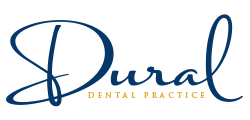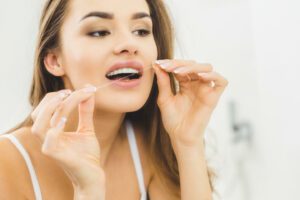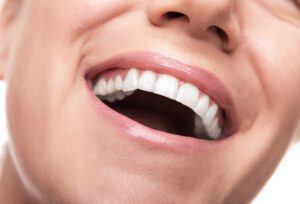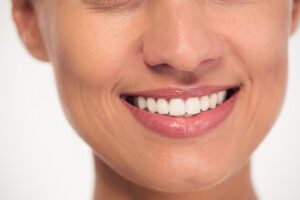Do you know the ideal age to bring your little one to the dentist for the first time? Or the real reason as to why we insist on brushing baby teeth regularly? Read on to find the answers to some of the most common questions we get asked regarding our tiniest patients!
When is a good time for a first checkup appointment with the dentist?
Ideally, the first dental visit should be around their 1st birthday, or when the first baby tooth erupts, whichever is sooner, being as early as 6-months of age if necessary. It is also a good idea to have a chat with your dentist even while you’re pregnant.
What happens at this first dental appointment?
The first appointment helps foster familiarity with the dentist/OHT and establishes a dental home for the child. We check if the teeth are erupting on time and assess the oro-facial development. We also provide anticipatory guidance regarding oral hygiene, tooth decay, fluoride use and oral habits, besides looking for structural abnormalities. Regular visits also help desensitise the child to the clinical environment and reduce the likelihood of developing dental anxiety in the future.
But aren’t these teeth going to fall anyway?
Baby teeth play a vital role in nutrition, speech and language development and jaw growth. They help form the permanent tooth buds and preserve the space for them to grow in the future. It is extremely important to take care of them for as long as they last.
But why should we take care of baby teeth?
Baby teeth are soft and quite prone to decay, which progresses fast and often without symptoms, thus requiring regular monitoring. Decaying baby teeth pose a risk of infection. Larger decays which extend to the nerve are often painful to the child and can be distressing. Their premature loss could hamper jaw growth and result in crowded permanent teeth.
Do baby teeth get cavities?
Yes, the decay in baby teeth can range from being mild to rampant. Common causes include added dietary sugar, frequent snacking, excess of fruits/juices regularly instead of healthy fibrous snacks. Early childhood caries or baby bottle caries are common sequelae of nighttime milk-feeding routines.
How do we take care of the baby teeth?
The best way to do so is by brushing twice daily, with a rice-grain-sized amount of an age-appropriate fluoride-containing toothpaste, until the child can spit safely. Once they’re able to spit, a small pea-size amount is advisable. We also recommend incorporating plenty of fibrous fruits/vegetables in the diet, and minimizing citrus fruits if possible.
Is it normal for my child to grind their teeth in sleep?
Grinding is quite prevalent in the early years of life but it is important for us to rule out airway issues or breathing difficulties, which are not uncommon considering children have larger than normal tonsils and adenoids.
My child takes the pacifier, I hope that’s not a problem?
Oral habits are a great topic to discuss with your Dentist or OHT. Digit sucking or pacifiers do not usually cause long-lasting effects unless the habits continue beyond 2 years of age. We also like to assess for other habits such as tongue thrusting and mouth breathing which may require further assessment of their airway.
How long do the baby teeth stay for / when do the permanent teeth come in?
The baby teeth will be lost sequentially around 7-12 years of age. It is important to note that the back baby molars will usually be the last ones to go and play a pivotal role in holding the space for permanent premolars. Also, 1st permanent molars are usually the first to erupt around 6 years of age, which often go undetected and are extremely prone to decay from an early age.
Will my child need braces?
We start looking for signs of a need for an early intervention around 6-7 years of age when their jaws are still growing. We may recommend jaw- expansion if we suspect potential space issues. However, it is noteworthy that though the expanders help maximize the available space for the erupting teeth, braces may still be required to ensure a better alignment of the teeth. We assess for traditional braces around 11-12 years of age.
How do we prevent cavities?
Some of the best methods to prevent cavities in baby teeth or early permanent dentition are healthy snacking habits such as fibrous fruits, vegetables, regular dental checkups and appropriate oral hygiene measures such as brushing and flossing daily. To minimize the risk of baby bottle caries/early childhood caries, please consider night-weaning or discuss alternatives with your dentist/OHT. We also recommend fissure sealants on permanent molars when they erupt and to keep replacing them as needed. These are some of the time-tested methods we suggest, but we’d love to go over a greater detail when we meet you!





